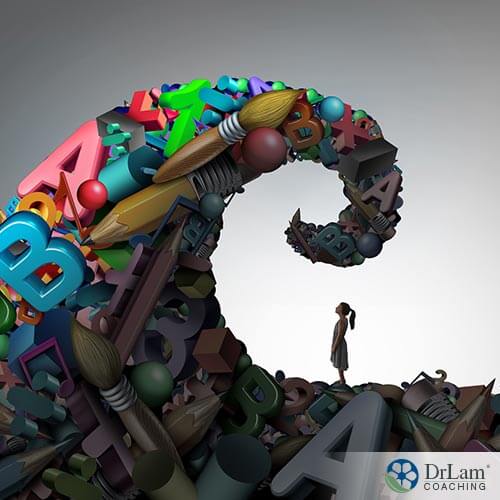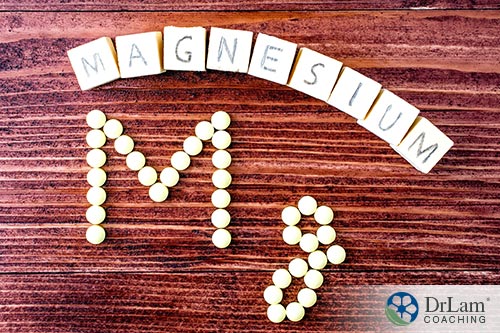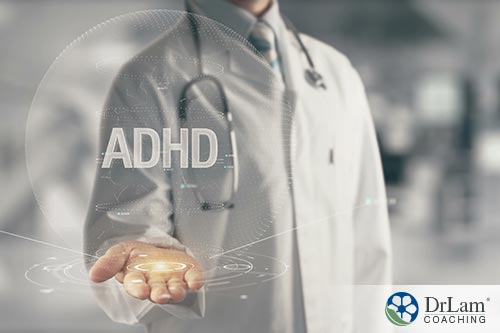 ADHD, or attention deficit hyperactivity disorder, is a condition that has been appearing in increasing frequency among both children and adults. More and more research indicates this disorder occurs along a continuum, allowing the identification of more people affected. The standard medical approach to remediating this disorder involves medications that can lead to significant side effects and potentially long-lasting problems. This is why there is a growing interest in adaptogens for ADHD.
ADHD, or attention deficit hyperactivity disorder, is a condition that has been appearing in increasing frequency among both children and adults. More and more research indicates this disorder occurs along a continuum, allowing the identification of more people affected. The standard medical approach to remediating this disorder involves medications that can lead to significant side effects and potentially long-lasting problems. This is why there is a growing interest in adaptogens for ADHD.
According to the Centers for Disease Control and Prevention, the reported cases of ADHD increased dramatically between 2003 and 2011. A significant number of these cases assessed in children do not improve as they reach adulthood. An estimated 4.5% of adults carry the label of ADHD, and a significant number beyond that suffer from the symptoms of this brain condition.
ADHD has three main subtypes: inattentive, hyperactive-impulsive, and combined hyperactive-impulsive and inattentive. All show some or all of the following symptoms:
These symptoms cause significant problems in a typical school setting. ADHD may also appear as a comorbid condition with several other disorders. These include autism spectrum disorder, learning disabilities, anxiety, depression, and addictions.
Many of these symptoms also appear in those who suffer from Adrenal Fatigue Syndrome (AFS). Because ADHD symptoms are strongly connected to the brain, the Neuroaffect circuit of the NeuroEndoMetabolic (NEM) Stress Response mechanism, which is the body's global response to stress, plays a part in these symptoms.
The use of adaptogens for ADHD can bring relief from some of these symptoms, but to understand why, first you must understand how this system works.
The Neuroaffect circuit of the NEM stress response involves the microbiome, brain, and autonomic nervous system. These three components work together and can develop problems when faced with chronic stress. An imbalance in any one of these components can affect the others through changes in hormones and neurotransmitters.
Chronic stress affects brain function. It can trigger the release of high levels of cortisol, norepinephrine, and epinephrine through the autonomic nervous system. These hormones/neurotransmitters work to help your body fight the effects of stress. However, they can dysregulate over time, becoming too high, too low, or causing imbalances in other hormones, leading to problems with brain function. Dysbiosis of the microbiome also can lead to high levels of inflammation, which can affect brain function and structure.
ADHD is only one of the serious maladies to come from dysfunction in this circuit.
The most often tried approach in dealing with this difficult condition involves prescriptions for medications. This same approach is also turned to for anxiety and other brain-based conditions.
Medications for ADHD work to manage symptoms by targeting neurotransmitters in the brain. However, a majority of these neurotransmitters come from your microbiome and gut. If these are dysregulated due to dysbiosis, the supply of these neurotransmitters becomes limited.
These medications may suppress symptoms, but they also bring a multitude of side effects. These include sometimes severe problems with sleeplessness, mood swings, and depression.
Overall, many studies show a lack of long-term improvement in symptoms. And in many cases, those who take these medications often suffer from a lack of self-esteem compared to those who do not take these medications.
For some people, the medications typically used for ADHD work well. They help a large number of children do well in school.
The classes of medications most frequently prescribed to deal with ADHD are stimulants and antidepressants. Stimulants work paradoxically to slow down the mental activity of those with ADHD. On the other hand, once people with this condition reach a certain age, antidepressants seem to work more effectively.
However, more and more people are turning to natural approaches to deal with this condition. Adaptogens for ADHD may be just as effective as prescription medications without the side effects or potential for long-term addiction.
The following discussion details some of the natural approaches and adaptogens for ADHD.
However, it is important to consider that different supplements and approaches work differently for every person. Therefore, it's best to talk with your doctor first. You may also need to experiment with different approaches until you find what works best for you.
 This powerful amino acid, found naturally in green tea, has a more calming effect than coffee, in spite of the caffeine contained in it. Research shows L-Theanine reduces anxiety and improves mood. It doesn’t cause drowsiness if taken during the day and works quickly to sharpen mental focus. In addition, when combined with coffee, it may help improve concentration and productivity.
This powerful amino acid, found naturally in green tea, has a more calming effect than coffee, in spite of the caffeine contained in it. Research shows L-Theanine reduces anxiety and improves mood. It doesn’t cause drowsiness if taken during the day and works quickly to sharpen mental focus. In addition, when combined with coffee, it may help improve concentration and productivity.
This powerful adaptogen for ADHD helps restore balance to the body, increases energy, and improves concentration. You can take this adaptogen alone or in combination with other herbs and amino acids.
Another adaptogen for ADHD, ashwagandha works more to help you relax, fight anxiety, and reduce depression compared to Rhodiola.
Using this adaptogen for ADHD daily leads to improvement in symptoms after about five weeks, according to research.
This adaptogen for ADHD works to increase energy, boost memory, and increase brain function. In addition, research shows an increase in dopamine and norepinephrine with this adaptogen.
 Studies indicate children with ADHD experience deficiencies in magnesium compared to those without ADHD. Research shows supplementing with two hundred milligrams per day of magnesium such as Mag Three could decrease hyperactivity within six months.
Studies indicate children with ADHD experience deficiencies in magnesium compared to those without ADHD. Research shows supplementing with two hundred milligrams per day of magnesium such as Mag Three could decrease hyperactivity within six months.
A number of studies indicate supplementing with zinc could help reduce symptoms of hyperactivity in children. Children with ADHD frequently show a deficiency in zinc. Eating oysters, crab, legumes, and pumpkin seeds can also increase your zinc levels.
Research indicates an association between low serum vitamin D levels and ADHD. For example, this vitamin appears to play a role in supporting attention and impulse control. So, supplementing with vitamin D like D5000 Plus, brings improvement in impulsivity, hyperactivity, inattention, cognitive function, and oppositional behaviors.
B vitamins play a large role in attention and executive function. Each of the several B vitamins supports the brain differently. Each of them affects some symptoms of ADHD. And studies indicate a combination of magnesium and vitamin B6 can bring improvement in behavior, decreased aggression, and decreased anxiety.
Research shows omega 3 to be essential in improving brain health, especially impulse control and attention. In addition, it works to decrease inflammation in the body.
Omega 3 can come from consuming supplements like Liquid OM-3, wild-caught salmon, flax, and walnuts.
Research indicates people with ADHD have lower levels of these fatty acids than those without ADHD. Consequently, when given supplementation with the fatty acids, their ADHD symptoms improved.
Many more people are seeking to control ADHD symptoms naturally due to decreased risk of side effects and long-term addiction. Adaptogens for ADHD can bring improvement in symptoms without the risk of rebounding at night, sleeplessness, irritation, or long-term potential for addiction.
Research indicates benefits from using adaptogens for ADHD in the form of increased attention, decreased hyperactivity, increased ability to focus and concentrate, and decreased anxiety, depression, and aggression.
However, while adaptogens for ADHD appear beneficial, they also require some caution. Many of them can cause significant health issues if used in high dosages. Likewise, pregnant and breast-feeding women should not use many of them, although vitamins D, B, and magnesium and zinc appear to be safe in most cases. It's always a good idea to first check with your doctor.
Different supplements affect people differently. So, you may need to try several to decide what works best for you. If you are suffering from Adrenal Fatigue, you might have an opposite reaction to these supplements that could actually make your ADHD symptoms worse. This is why it is important to consult an adrenal fatigue specialist who can help guide you through your recovery journey. If you find that you are sensitive to supplements, this is especially important to prevent adrenal crashes.
If you are suffering from ADHD, here are a few things you can do to help alleviate the situation.
 Consult with a healthcare professional who knows about ADHD, supplements, and AFS.
Consult with a healthcare professional who knows about ADHD, supplements, and AFS.Whatever course of action you decide to take, however, please do so with the guidance of your healthcare practitioner who will assess a supplement’s benefits for you as well as recommending the correct dosage.
If you would like to know more about or need assistance determining how to use adaptogens for ADHD, the team at Dr. Lam Coaching can help. We offer a free** no-obligation phone consultation at +1-626-571-1234 where we will privately discuss your symptoms and various options. You can also send us a question through our Ask The Doctor system by clicking here.
Adaptogens for ADHD provide an alternative to traditional medications with fewer side effects and less propensity for addiction. Studies show that these adaptogens, along with some supplements, could help many of the symptoms of ADHD. However, they are not safe for everyone, especially those with AFS, blood sugar and blood pressure issues, and who are pregnant. Be sure to do your research first.
